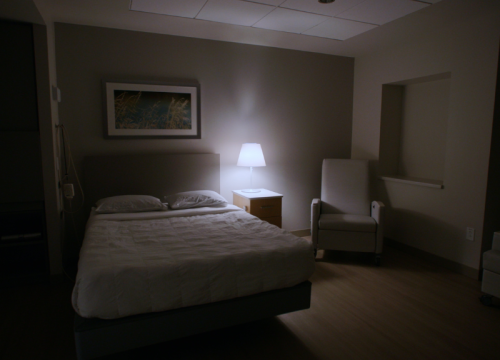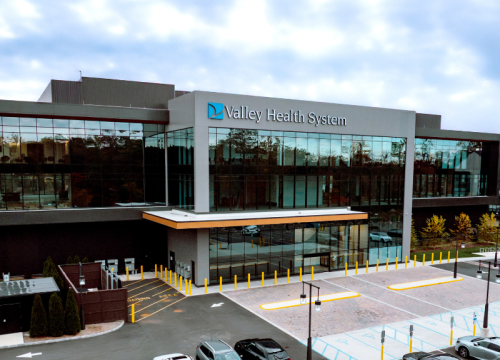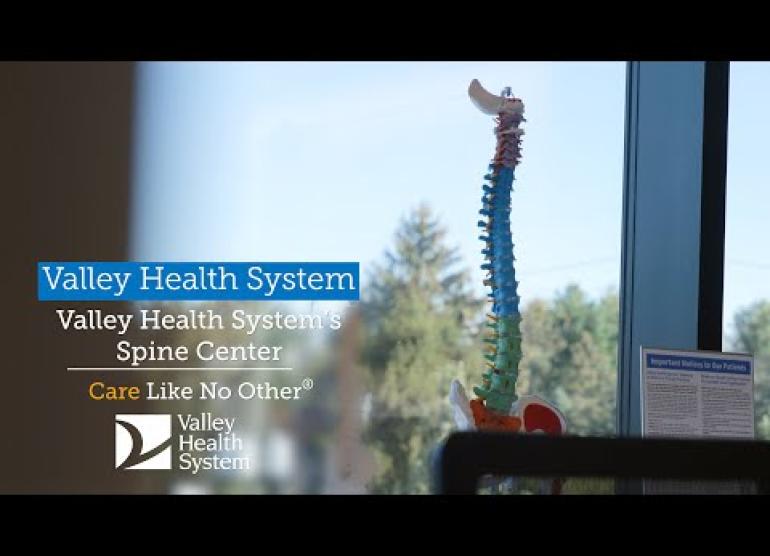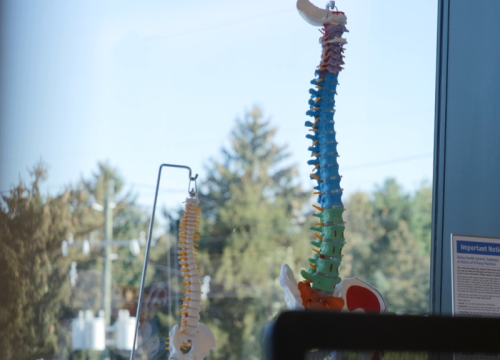Pituitary tumors are growths that form on the pituitary gland located in the base of the brain. They’re usually benign, or noncancerous, and don’t spread to other parts of the body. Another name for benign pituitary tumors is pituitary adenomas.
Pituitary tumors can cause a number of problems, including impaired vision and hormone imbalances. At Valley, our expert neurosurgeons can treat most types of pituitary tumors with minimally invasive surgery. Using advanced technology and techniques, our neurosurgeons can remove your pituitary tumor without a larger open surgery (craniotomy).
Types of Pituitary Tumors
There are different types of pituitary tumors:
- Functioning pituitary tumors first develop in cells that produce normal hormones. This can affect certain hormones — like prolactin, adrenocorticotropic hormone (ACTH) and growth hormones — and make the body overproduce them. This can impact your metabolism, growth, reproduction and other functions. These tumors can also lead to other conditions like hyperthyroidism, acromegaly, and Cushing’s Disease.
- Nonfunctioning pituitary tumors first develop in cells that do not naturally produce hormones. These tumors can grow quite large, and can impair the normal hormone production. They can press on the brain and other parts of the nervous system even before symptoms begin. These tumors can cause problems with vision, eye movements, and hormone levels.
Pituitary Tumor Symptoms
Signs of a pituitary tumor vary depending on the type of tumor. Symptoms are often related to the size of the tumor and the part of the brain it presses against. Because these tumors are slow growing, some pituitary tumors do not cause noticeable symptoms at all, even when they are large.
Depending on the type, symptoms of a pituitary tumor can include:
- Vision problems
- Headaches
- Sudden weight loss or weight gain
- Weakness
- Nausea or vomiting
- Loss of interest in sex
- Sexual dysfunction
- High blood pressure
- Facial roundness
- Increased body hair
- Enlarged hands and feet
- Increased sweating
- Irregular menstrual periods
- Amenorrhea (when you don’t get your monthly period) at an early age
- Milky breast discharge
Pituitary Tumor Treatment at Valley
Pituitary tumor surgery is often the main treatment for most pituitary tumors, but there are other options. Here at Valley, we have a dedicated Endoscopic Pituitary and Skull Base Surgery program that delivers multi-disciplinary, comprehensive, state-of-the-art care to our patients with pituitary tumors. Our team works together to customize care to your specific needs. With early treatment, we can get you back to feeling better, as soon as possible.
Depending on the type of tumor, its size and your symptoms, your Valley care team may recommend one or more of the following treatments:
- Watchful waiting: Because some benign pituitary tumors do not need treatment, we may regularly monitor your tumor for changes before starting treatment.
- Medicines: We may prescribe medications to alleviate your symptoms by blocking excess production of certain hormones.
- Hormone replacement therapy: This therapy increases hormones when your body doesn’t make enough, either due to the tumor or from treatment.
- Radiation therapy: We may use high-energy radiation beams to destroy tumors. We offer technologies such as stereotactic radiosurgery that precisely target tumors while protecting healthy cells. We typically reserve this type of treatment for tumors that cannot be removed surgically, or for tumors that have grown despite other treatments.
- Gamma Knife radiosurgery: This advanced form of radiation focuses multiple beams of high-dose gamma radiation to shrink pituitary tumors. It’s noninvasive, which means there are no cuts involved. We typically reserve this type of treatment for tumors that cannot be removed surgically, or for tumors that have grown despite other treatments.
- Pituitary tumor surgery: Our neurosurgeons can treat most pituitary tumors with endoscopic endonasal surgery. When endonasal surgery is not possible, we can perform traditional surgery (craniotomy).
Minimally Invasive Pituitary Tumor Surgery
Valley neurosurgeons are highly experienced in removing pituitary tumors using minimally invasive techniques. In fact, our neurosurgeons treat most pituitary tumors with endoscopic endonasal surgery to remove a pituitary tumor through your nose. This approach is considered as effective as traditional open surgery but often has fewer side effects, and has been shown to result in more tumor removal than more traditional transnasal surgery using a microscope.
Compared with traditional brain surgery, benefits of minimally invasive pituitary tumor surgery include:
- Less pain and bleeding
- Fewer infections and other complications
- No visible scars because we remove the tumor through your nose
- Less time in the hospital
- Faster recovery
- Increased rates of resection
- Ability to use your nasal tissue to reconstruct the skull base defect from surgery at the same time
Your neurosurgeon will work with you to determine if minimally invasive pituitary tumor surgery is right for you.
Why Choose Valley for Pituitary Tumor Care?
- Expertise in minimally invasive surgery: Our dedicated Endoscopic Pituitary and Skull Base Surgery program specializes in the minimally invasive treatment of pituitary and skull base tumors. Our neurosurgeons have years of experience performing pituitary tumor surgery using the least invasive, most effective techniques. In fact, most pituitary tumor surgeries at Valley are performed through the nose with an advanced endoscope (endoscopic endonasal). We use advanced tools like brain mapping to create a 3D model that pinpoints the best way to reach your tumor. We also continue to use novel imaging, including intraoperative ultrasound, and even intraoperative MRI, in order to lead to maximal safe tumor resection. This allows us to avoid healthy brain tissue and leads to better outcomes.
- Excellent care and convenience: Valley offers the excellence of an academic center in a community setting. Our neurosurgeons offer well-planned and extremely precise procedures using the latest techniques. We have a dedicated neuroscience intensive care unit with nurses who are trained to provide specialized care after brain surgery. And at Valley, our neurosurgeons, not residents, perform your surgery. You don’t have to go far from home for the highest level of care.
- Care from multiple specialists: Valley neurosurgeons work with a team of specialists, including radiation oncologists, endocrinologists, ophthalmologists, ENT surgeons, and many others to care for you. Your care team may also include dietitians, social workers, physical therapists and occupational therapists.
- Gamma Knife Center: For pituitary tumors, Gamma Knife radiosurgery may be an alternative to brain surgery or conventional brain radiation. Our team creates a specific treatment plan for your pituitary tumor. Gamma Knife can mean an easier recovery with less post-procedural pain compared to brain surgery, and less damage to healthy brain tissue compared to whole-brain radiation. It may be paired with minimally invasive surgery to achieve the best results for select tumors.
- Nurse navigators for your support: We take time to explain your condition, and how it’s treated. Our neuroscience nurse navigators guide you along the way, scheduling care and offering everything you need to feel supported.


























